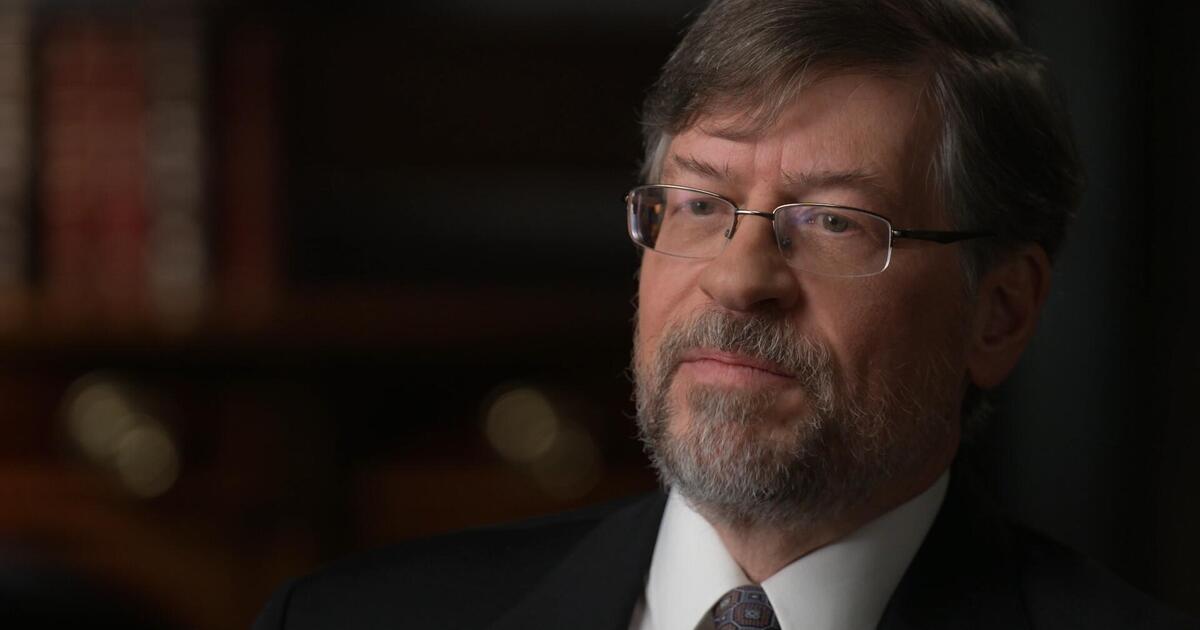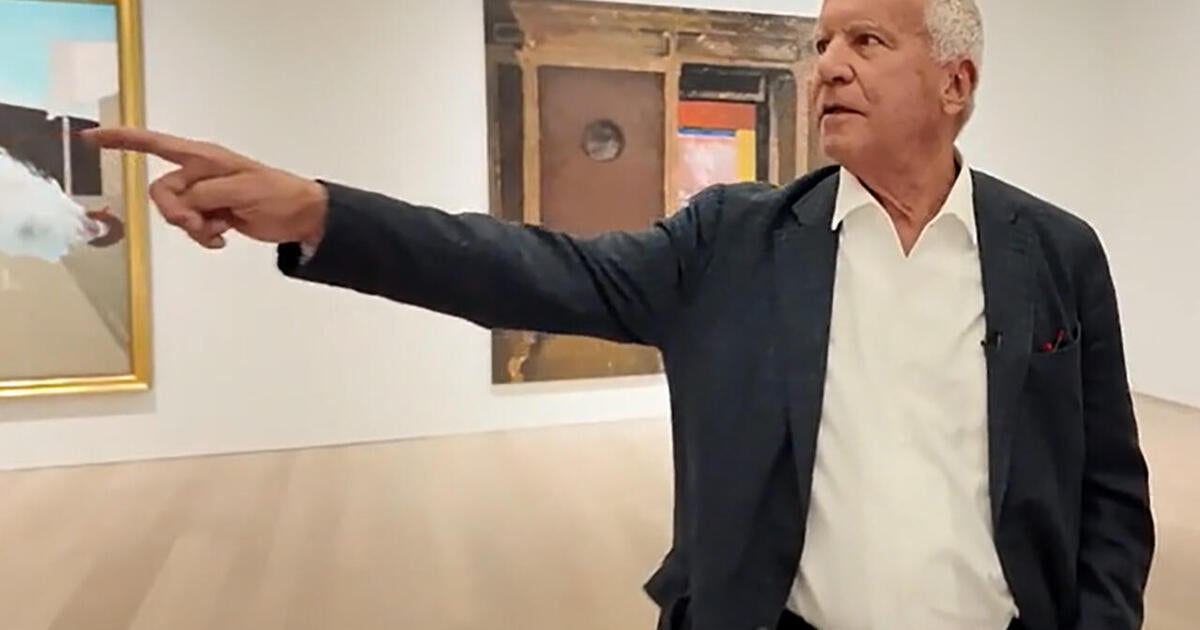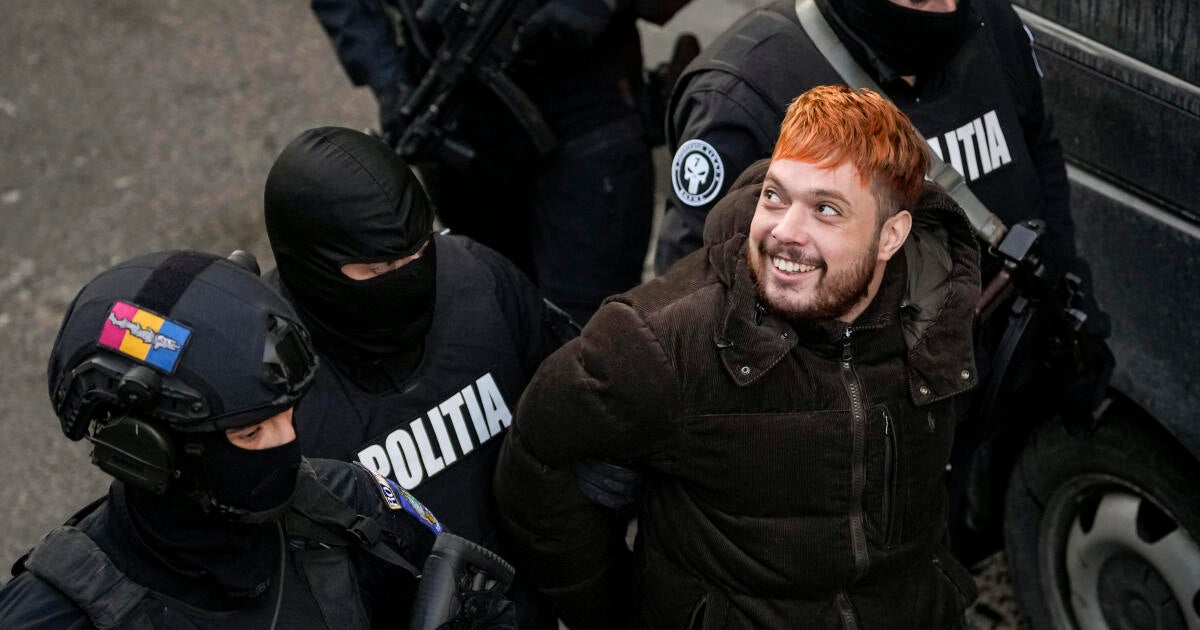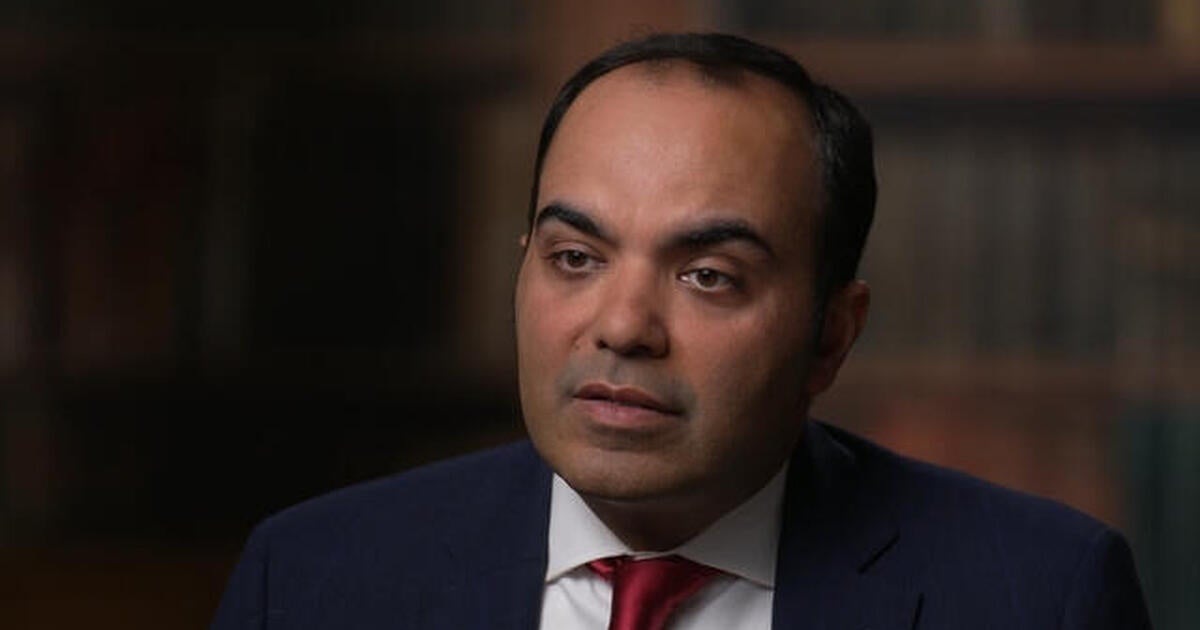Upheaval at the Justice Department
The U.S. Department of Justice is reeling tonight from firings and resignations in the first weeks of the Trump administration. One senior leader describes a workplace of “confusion” and “fear.” The Justice Department wields enormous power through the FBI and federal prosecutors. It is critical to crime fighting and national security. But even more, the Justice Department is where Americans look for the rule of law. President Trump has been a target of its investigations during the Biden administration. Now, Trump says, his administration is cleaning up a Justice Department corrupted by politics. Fear has silenced many in the department. But two prosecutors we met, chose to speak up.
Sara Levine: The Justice Department is under attack. They’re coming after the people that want to uphold the laws that exist. And that should be terrifying to everyone.
Sara Levine and Sean Brennan were federal prosecutors on the Justice Department’s biggest investigation – the attack on the Capitol – until they were fired by the Trump administration January 31st.
Scott Pelley: Why were you fired?
Sara Levine: Because I did my job. I mean, it’s really that simple, is, I went in. I followed the facts. I followed the law. And I got fired because I did exactly what I was supposed to do.
Sean Brennan: I think we know what we did was right. No regrets, absolutely none.
Sara Levine: What we did was justice.
‘Justice’ for 140 police officers wounded January 6th, 2021. Levine and Brennan were hired, about a year and a half ago, to prosecute cases from the riot.
Scott Pelley: And in how many of your cases was the defendant acquitted?
Sean Brennan: None.
Sara Levine: None.
Scott Pelley: Which tells you what?
Sara Levine: The evidence was overwhelming.

60 Minutes
Overwhelming but, last month, the president pardoned even the most violent convicts —whom he calls by another name.
President Trump (on Jan. 20, 2025, in the Oval Office): So this is January 6th, these are the hostages, approximately 1,500, for a pardon. Full pardon.
Not long after the ink was dry, letters of termination hit the Justice Department. The letters rewrote history, calling the prosecution itself, in the words of the president, “a grave national injustice.”
Sean Brennan: Anyone who has watched videos of what happened on January 6th, knows that the grave national injustice was not the decision to prosecute the rioters. The grave national injustice has been the Department of Justice turning its back on those law enforcement officers, those members of Congress, and all of those victims who were affected.
Peter Keisler: This was a decision to protect people who had committed serious crimes because they were doing so in support of the president’s reelection.
To understand the Department of Justice, we went to one who knows it well. Peter Keisler served Republican presidents and was, himself, head of the Justice Department in 2007 as acting attorney general for George Bush.
Peter Keisler: I don’t think anybody believes that these people would’ve been pardoned if they had engaged in exactly the same acts, but had stormed the Capitol, say, in opposition to the president and his policies.
Scott Pelley: What message does the president’s pardon send?
Peter Keisler: It says that you can commit some very serious crimes, but if you do so as an identifiable supporter of the president’s agenda and political interests, you may be able to get off. And I think it was designed to send that message.
A message that also hit the FBI. Trump’s acting deputy attorney general, Emil Bove, demanded the names of about 5,000 FBI personnel who had tracked down the Capitol rioters in 50 states. He has encouraged agents to inform on one another. And he directed the firing of eight of the FBI’s top executives, saying in part…
Scott Pelley: “I do not believe that the current leadership of the Justice Department can trust these FBI employees to assist in implementing the President’s agenda faithfully.” Is that the job of the FBI to implement the president’s agenda?
Peter Keisler: No. I mean, the president obviously has the prerogative to set the overall policies of the administration. But both the FBI and the larger Justice Department of which it’s a part of owe their duty to the law.
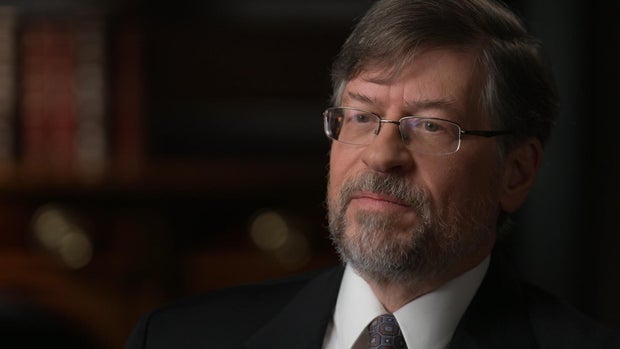
60 Minutes
Scott Pelley: But someone might say, “Well, isn’t this what always happens? A new president comes in, the former people are wiped out, and new people are appointed.”
Peter Keisler: Not at all. This is really unprecedented and it’s important to understand why. Political appointees get removed and replaced by presidents all the time. This is the top layer of leadership. But beneath them in the core of the government are the civil servants. These are people who have developed expertise over often decades of experience working across administrations of both parties. And whose jobs are protected by civil service laws that have been on the books since the late 19th century.
Trump’s new leader of the Justice Department is Attorney General Pam Bondi, former attorney general of Florida. She is a Trump loyalist who says that the Justice Department’s prosecutions of the president were motivated by politics.
Pam Bondi (on January 15, 2025, during a confirmation hearing): They targeted Donald Trump. They went after him. Actually, starting back in 2016, they targeted his campaign. They have launched countless investigations against him. That will not be the case if I am attorney general. I will not politicize that office. I will not target people simply because of their political affiliation. Justice will be administered even-handedly throughout this country.
Bondi and Bove declined our request for interviews.
Pam Bondi (on January 15, 2025, during a confirmation hearing): If confirmed I will fight every day to restore confidence and integrity to the Department of Justice and each of its components. The partisanship, the weaponization will be gone. America will have one tier of justice for all.
Having said that, Bondi launched a review to scrutinize those in the Justice Department who were involved in prosecutions of Donald Trump, including his indictment in the 2020 election case and his indictment for allegedly hiding classified documents in his home.

Andrew Harnik / Getty Images
Peter Keisler: I don’t think anyone who’s been watching the last four weeks could say they are taking politics— politicsout of the law enforcement process. Quite the contrary. They are engaging in the very politicization and weaponization that they claim to be trying to eliminate.
Peter Keisler, former acting attorney general, was a Republican until Trump’s first term, when Keisler switched to Independent.
Scott Pelley: Some people watching this interview say, “You were always against the president. Of course you’re saying these things.”
Peter Keisler: Well, it’s true that I’ve never voted for Donald Trump. My concern about the use of law enforcement to achieve political ends, that’s among the reasons I’ve never voted for President Trump. But at the end of the day, people can support whatever candidate they want. I would hope that nearly everybody would agree as a basic matter that our criminal justice system shouldn’t be used as a tool of politics to reward friends and punish personal enemies.
That appearance of ‘rewarding friends’ has triggered the biggest rupture so far. It involves a bribery indictment against the mayor of New York, Eric Adams — a charge Adams denies. Though he’s a Democrat, Adams agreed to help Trump’s deportation effort. This month, Emil Bove ordered New York prosecutors to drop the bribery prosecution of Adams, in part, so that Adams could “…devote full attention…” to “…illegal immigration and violent crime…”
Peter Keisler: The directive to drop the charges against Mayor Adams was one of the most nakedly political documents out of the Justice Department I’ve ever seen. If Mayor Adams had instead been an opponent of the president’s immigration agenda, then he would’ve been prosecuted. But because he says he wants to help advance the president’s immigration agenda; he doesn’t get prosecuted.
Bove’s order triggered a revolt. Danielle Sassoon, the top prosecutor in Manhattan, resigned. She refused to sign a motion to dismiss the case because it was, in her words, for “…no other reason than to influence Adams’s mayoral decision-making…” Bove shot back, criticizing the case, writing, “you have also strained, unsuccessfully, to suggest that some kind of quid pro quo arises from my directive. This is false…” But a second Manhattan prosecutor quit, telling Bove he would have to find someone who is “…enough of a fool, or enough of a coward…” to sign the motion. Bove ordered prosecutors in Washington to sign and there, six more resigned, for a total of eight.
Scott Pelley: And how seriously should the public take those resignations?
Peter Keisler: Oh, it’s a flashing red light. Nobody gives up these jobs easily. But people have resigned because they are being otherwise commanded to perform unethical acts that they think are contrary to their responsibilities.
Scott Pelley: Looking ahead, what is the tripwire, in your view, that would signal that the country is in serious trouble?
Peter Keisler: Well, I think we’re already there. I think when you have a major political corruption prosecution dismissed because somebody has agreed to become a political ally of the president, you know, that tripwire has already been tripped.
This past week, Emil Bove explained his motion to dismiss to a federal judge. There is no decision yet. Last Thursday, by the thinnest of margins, the Senate confirmed Trump’s new director of the FBI, Kash Patel. In a message to the bureau, Patel said his commitment is to “justice” and “the rule of law.” He’s a former prosecutor who is dedicated to Trump. Patel has written children’s books featuring a ‘King Donald’ who is protected by a wizard named Kash.
Sara Levine: Right now we are really in a place where we are teetering on the edge.
For former prosecutors Sara Levine and Sean Brennan, speaking publicly was not an easy decision. But in the end, they believe silence may be the greatest threat to justice.
Sean Brennan: I don’t think I could live with myself if I didn’t at least try to help people understand why what we’ve seen happening in the Department of Justice over the past few weeks is so critical and why it not only puts all Americans individually at risk. It really puts our constitutional governmental structure at risk.
Sara Levine: The thing is, as prosecutors, we have an ethical obligation that’s higher than any other attorney. Because what a prosecutor can do is we can take away somebody’s liberty. And what they’re doing is they’re driving out people that are willing to follow the law. And that’s terrifying because our democracy falls apart if there’s not some sort of law and order that goes along with it.
Produced by Aaron Weisz, Ian Flickinger and Pat Milton. Associate producer, Georgia Rosenberg. Broadcast associate, Michelle Karim. Edited by Michael Mongulla.

